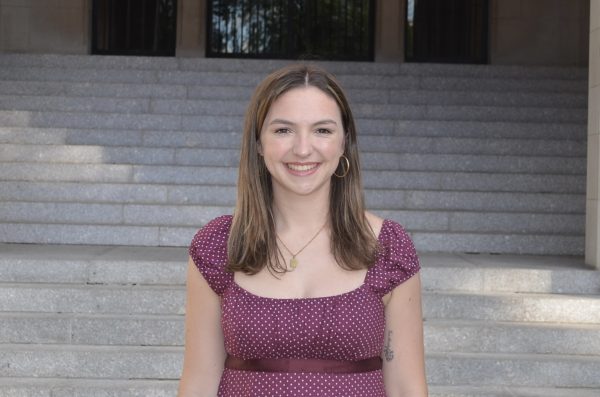Fordham University founded the Global Research Alliance of Jesuit Universities (GRAJU) on Aug. 5, with six other Jesuit universities. The alliance aims to foster global and interdisciplinary research, promote funding of research projects and advance and uphold the Jesuit mission, according to its website.
“Guided by Ignatian values of excellence, justice, and service to humanity, Fordham partnered with Jesuit higher educational institutions to establish a global research community dedicated to shaping a more hopeful and just future through research,” said Z. George Hong, Ph.D. chief research officer and associate provost for research at Fordham, in an email.
The other founding institutions include Georgetown University, Ateneo de Manila University in the Philippines, Instituto Technológico y de Estudios Superiores de Occidente (ITESO), Universidad Jesuita de Guadalajara in México, Sogang University in South Korea, University of Deusto in Spain and University of Namur in Belgium.
According to Hong, the initiative builds upon the Fordham Faculty Research Abroad Program, which was established in 2018 to promote research collaborations among Jesuit institutions and universities worldwide.
“To build on this success, Fordham identified an opportunity to create a broader, more sustainable global network that would deepen scholarly partnerships, promote interdisciplinary innovation, and advance mission-driven research,” Hong said.
In spring 2025, the universities convened to create international connections centered around research in higher education institutions, an initiative facilitated by Fordham, according to Hong.
In August, GRAJU was officially launched and an executive committee was created with representatives from the founding institutions. Since its founding, seven additional Jesuit universities have joined GRAJU as members, and more institutions are continuing to apply for membership every month, according to Hong.
The alliance established four primary goals: Creating global collaboration through research projects between international Jesuit universities, advancing research across multiple disciplines that address global issues and uphold Jesuit values, promoting the pursuit of external international and national funding and grants and supporting the Jesuit mission, namely the importance of education, service, ethics and research for the betterment of society. Hong affirmed these goals in his email.
“[GRAJU is] an organization and community of Jesuit higher education institutions united by a commitment to mission-driven research that addresses pressing global challenges,” Hong said.
Jeffrey Urbach, vice provost for research and professor of physics at Georgetown University, explained why he thinks collaborative research will be beneficial for participating institutions.
“The motivation for connecting is the commonality, that is the Jesuit piece. But the competitive advantage is that it gives you the ability to find complementary strengths,” Urbach said. “I think it’s hard to be specific about where we will find those, that’s why we bring people together … sometimes that strength can just be locality expertise.”
He also said that connecting with international institutions will allow the universities to answer research questions on a global scale.
“An increasing number of challenges that we face as a society are global in nature, and research at all universities, but Jesuit universities in particular, is motivated by our mission to men and women for others, making the world a better place, research for the common good,” Urbach said. “To be effective, we need to be working globally … I would say we’re always looking for ways to work together more effectively, and this is a natural way.”
The alliance also establishes an annual symposium, which will allow participating institutions to present joint research, find new collaboration opportunities and create goals for the alliance, according to Hong.
The inaugural symposium will occur in March 2026 and will be hosted by Ateneo de Manila University. The event will focus on artificial intelligence as it intersects with the core values of Jesuit institutions, according to Hong.
“The symposium will convene scholars, educators, and leaders worldwide to explore how Jesuit higher education can contribute to ethical and transformative engagement with artificial intelligence,” Hong said.
Fordham is currently compiling a group to participate in the symposium through a call for proposals. They are accepting applications for research projects from tenured and tenure-track faculty members through Nov. 10.
Fordham law professor Olivier Sylvain has already been asked to deliver a keynote speech at the symposium, an opportunity which he says is an honor. He will present on the benefits and possible issues with artificial intelligence.
According to Hong, the annual symposium will continue to be hosted on a rotating basis by GRAJU member institutions. The event will take place in Spain in 2027 and Peru in 2028.







































































































































































































